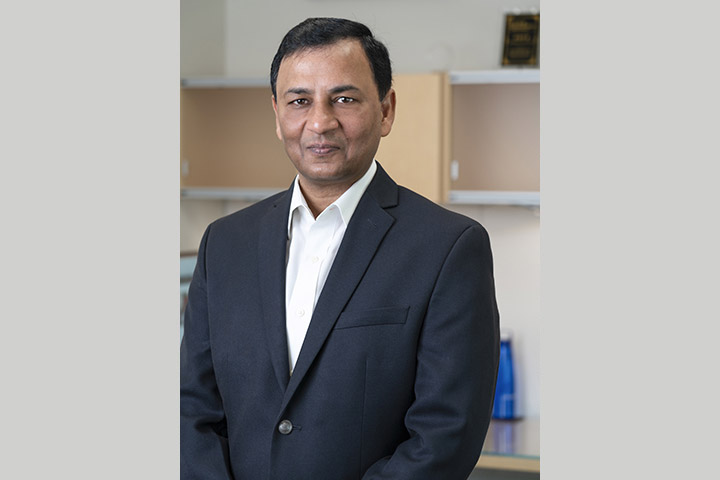Liquid Biopsies and the Status of Pancreatic Cancer Screening

Physician–scientist Conan Kinsey, M.D., Ph.D., of the Huntsman Cancer Institute at the University of Utah (Salt Lake City) focuses on gastrointestinal malignancies with a special interest in pancreatic cancer.
This is part two of our coverage of liquid biopsies and their potential promise in screening and early detection.
His research combines targeted therapies with autophagy inhibition in pancreatic and gastrointestinal cancers for rapid translation to patients. He talks to Let’s Win about common questions people have been asking regarding the promise of liquid biopsies and their potential role in screening and early detection. Like many of his colleagues, he thinks there could be potential. But a lot more work needs to be done.
First, the terms early detection and screening can be used interchangeably, correct?
Sometimes there is a little bit of confusion. In general, when we talk about early detection or early diagnosis, that focuses on detecting patients literally as early as possible. In other words, people who may have symptoms of a disease like cancer or who may be at high risk for a disease like pancreatic cancer who are enrolled in surveillance programs. Mass screening involves testing healthy individuals to identify those having cancers before any symptoms appear.
What makes for a good screening test?
Right now, screening is approved and recommended for breast, cervical, prostate, and colorectal, and certain people who may be at high risk for lung cancer. Those diseases have a high prevalence. The goal of screening for cancer is really straightforward. The screen needs to reduce illness and death.
Having more screening tests for other cancers would be great, but effective screening has to meet certain parameters. A screening test has to be valid and to accurately identify diseased and non-diseased individuals. It has to be sensitive. In other words, there has to be a high probability of detecting disease. And it has to be specific. That means there has to be a high probability that those without the disease will screen negative.
Cervical cancer screening with the Pap test is an incredible success story since it has dramatically lowered the mortality rate for that disease. Prostate cancer can be very slow growing and never cause any real issues. Or it can be very aggressive. But prostate cancer screening with a PSA test has been somewhat controversial. A man’s PSA level can be elevated when cancer isn’t present and not be elevated when cancer is present. And there’ve been dueling studies about whether lives are actually saved by PSA. So screening for prostate cancer with a PSA now involves a very detailed discussion between a patient and his doctor about what a PSA can and can’t do, individual risk factors, and more.
So the bottom line is that in some instances screening can potentially save lives. But screening too much can lead to overdiagnosis, overtreatment, and a lot of anxiety.
Multi-cancer screening tests looking for many different types of cancers with one blood draw, or disease-specific detection tests for individual cancers like pancreatic cancer, sound pretty good. What’s the problem, if any, with these tests at this point?
We don’t know enough about these tests yet. And no multi-cancer tests or pancreatic cancer specific liquid biopsy for high-risk individuals has been approved by the FDA. Their requirements are very stringent. And since nothing is FDA-approved, that means out-of-pocket costs.
There need to be randomized controlled trials. I can’t emphasize that enough. And these trials can take a while because they follow people over time, prospectively. So right now, we don’t know if benefits outweigh harms. We don’t know if there is improved survival or if deaths are reduced.
We need to know more about false-negative and false-positive results in those longer-term studies. Let’s say a person takes a multi-cancer early detection test and there’s a negative result. That person thinks they hit the jackpot, but in reality they actually have a cancer. Maybe they’ll skip getting mammograms or colon cancer screens. Or let’s say they get a false-positive for a cancer. But further testing doesn’t show anything. Can you imagine the anxiety that person will have? And when do you stop looking for a cancer that may not be there?
And again, there are always issues with cancers that grow slowly and don’t really cause any issues versus a cancer that’s aggressive. So there’s always a potential for overdiagnosis and overtreatment.
Even though some multi-cancer tests may show the organ of origin, remember it’s just a signal. You’re still going to need more testing like imaging or biopsy of the tissue. So someone may need several more procedures, and there can always be complications with those.
The bottom line is we need more research. I know people don’t want to hear that because it would be remarkable if we could have a simple blood draw that tells you if you have cancer and where that cancer is located. And then we’d be able to save your life. But this is all very complex. And it takes time.
Aren’t there liquid biopsies approved by the FDA already?
Yes, but those are used in people who have cancer to help guide treatment.
If these tests prove beneficial, wouldn’t that transform medicine?
Sure it would. I’m a gastrointestinal oncologist, and I would be ecstatic if more of my incredibly brave pancreatic cancer patients were diagnosed earlier when they could potentially get surgery. You would also have potential benefits for other cancers that don’t have mass screening. And maybe lives would be saved. Sometimes biopsies are hard to perform because of the location of a tumor. A liquid biopsy could help there.
But we really aren’t close to that yet. I’m a data guy, so let’s wait for the research. And then go from there.






